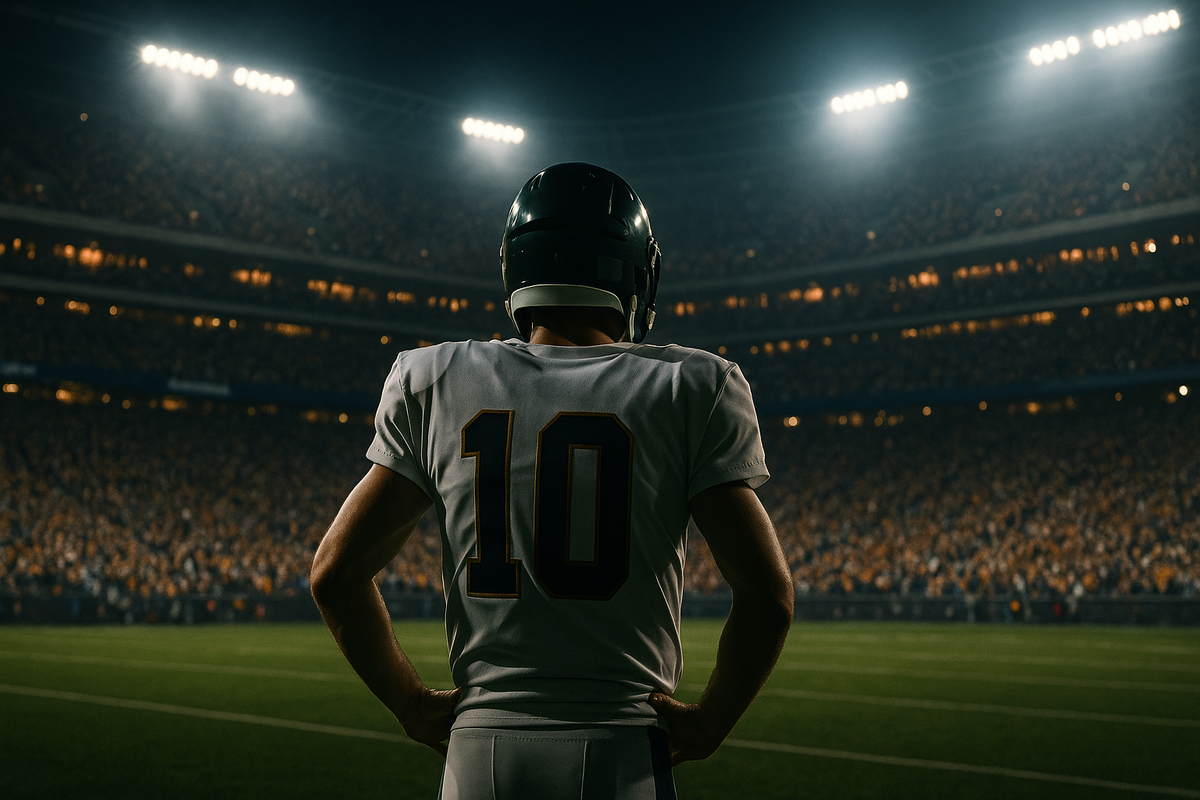How NFL Athletes Handle Pressure: 4 Strategies that Work with Millions Watching

Have you ever had 17 million people watching you on TV while 60,000 more sit in a stadium watching you do your job? Every movement, decision, and outcome is scrutinized. Your performance dictates your job security—and your family’s livelihood.
That’s the reality in pro sports. But pressure doesn’t only exist under stadium lights. Whether you’re a high school quarterback, a college athlete, or a pro—every level demands composure when it matters most.
So how do you manage that pressure and still perform?
Here are four strategies, grounded in science and experience, that I’ve used to stay calm and execute when it counts.
1. Log Off: Social Media Is Fueling Your Anxiety
Social media isn’t just a distraction—it’s a nervous system liability.
Recent studies in Frontiers in Psychology and Scientific Reports found that increased social media use in athletes is tied to heightened anxiety (β ≈ 0.26), reduced well‑being (β ≈ −0.35), and higher daily stress levels. TikTok use, in particular, was linked to worse sleep and recovery—two things your brain needs to handle pressure.
During the season, I log off. No algorithms. No scrolling. No reactivity. The upside: sharper focus, better sleep, and zero wasted emotional energy on what doesn’t matter.
2. Reset with the Physiological Sigh
This is the fastest way I know to lower stress on demand. One deep inhale through the nose, followed immediately by a second, shorter inhale. Then a long exhale through the mouth. That’s the physiological sigh.
Stanford’s Dr. Andrew Huberman explains how this taps into lung stretch receptors and offloads excess CO₂ rapidly. A 2023 study from his lab found that 1 minute of physiological sighing lowered anxiety more than mindfulness or box breathing.
I’ve used it mid game on multiple occasions.
3. Reframe Anxiety as Activation
Anxiety and excitement feel the same in your body—elevated heart rate, tight breathing, mental fixation. The only difference is your interpretation.
Stanford psychologist Carol Dweck’s research shows that reframing stress as a challenge (not a threat) changes outcomes—people perform better, recover faster, and even remember more.
So I try to reframe nerves as readiness. This isn’t a bad feeling—it’s my system preparing to go.
4. Run the Downside Playbook (via Tim Ferriss)
Tim Ferriss calls it “fear-setting.” Write down your worst-case scenario. Get specific. Then ask yourself: “Can I survive this?”
Almost always, the answer is yes. Throw a pick? Get benched? Fans boo? The game moves on. So do you. And people forget faster than you think—do you remember which quarterback played the worst in Week 4 of the NFL last season?
Research in the Journal of Anxiety Disorders backs this up. Accepting negative outcomes reduces stress and increases focus. Knowing the floor helps you focus on the ceiling.
Conclusion
Pressure is part of the game—at every level. For many, anxiety is the hidden barrier to reaching their ceiling. The solution isn’t talent, it’s strategy.
Test what works. Keep what helps. Ditch what doesn’t and you will enter flow states faster than your competitors.
From experts who work with 25+ NFL QBs, get personalized QB-specific throwing, arm care, lifting, and speed training by taking the assessment at kinetex.co. For insights on quarterbacking and biomechanics, subscribe here.
Works Cited
- Huberman, A. D. (2023). The Science of the Physiological Sigh. Huberman Lab, Stanford University. Link
- Dweck, C. S. (2006). Mindset: The New Psychology of Success. Random House. Link
- Ramirez, G. & Beilock, S. L. (2011). Writing about testing worries boosts exam performance in the classroom. Science, 331(6014), 211–213. Link
- Ferriss, T. (2017). Fear-Setting: The Most Valuable Exercise I Do Every Month. tim.blog. Link
- Muench, F., et al. (2023). Social Media Use and Well-being in Athletes. Frontiers in Psychology. Link
- Wang, X., et al. (2024). TikTok Use and Cognitive Strain in Young Adults. Scientific Reports. Link
